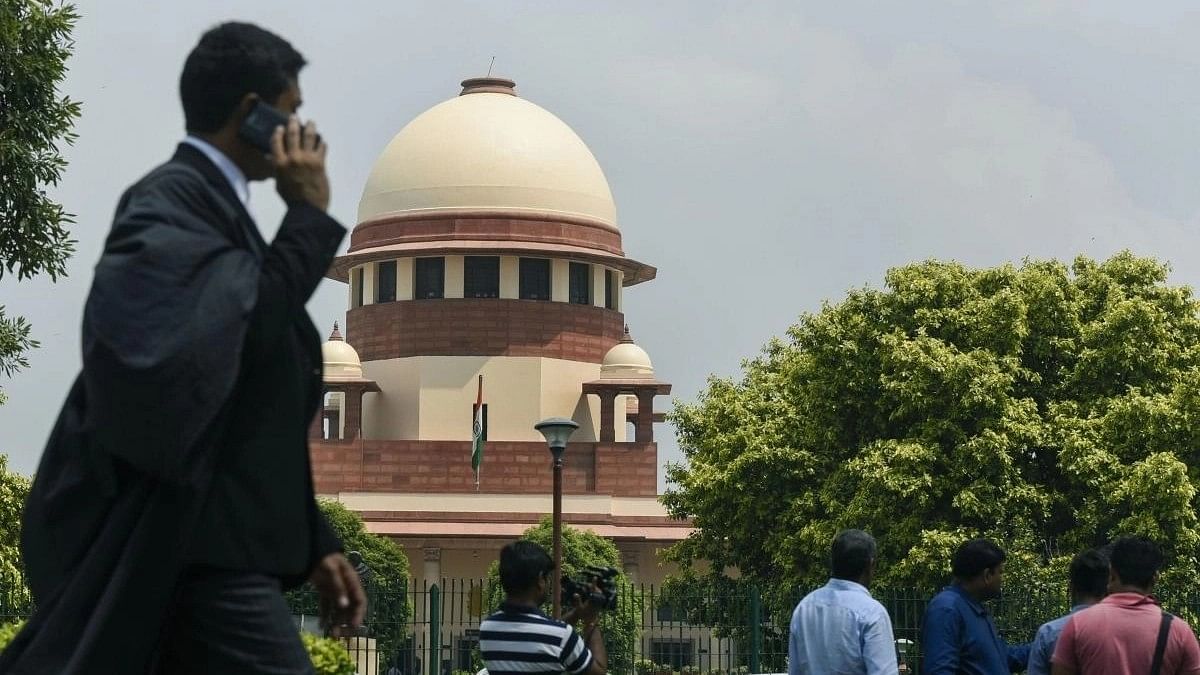
The Supreme Court of India.
Credit: PTI File Photo
New Delhi: The Supreme Court on Monday said para 2 of the Constitution (Application to Jammu and Kashmir) Order, 2019 by which Article 370 was amended by bringing in change of Article 367 of the Constitution was ultra vires as interpretation clause cannot be used for the purpose.
"Paragraph 2 of CO 272 (application of Constitution to J&K) by which Article 370 was amended through Article 367 is ultra vires Article 370(1)(d) because it modifies Article 370, in effect, without following the procedure prescribed to modify Article 370. An interpretation clause cannot be used to bypass the procedure laid down for amendment," a bench led by Chief Justice of India D Y Chandrachud said.
Notably, on August 5, 2019, on the fateful day, the President issued the order titled ‘The Constitution (Application to Jammu & Kashmir) Order, 2019’ (referred to as CO 272), under Article 370(1) of the Constitution with the concurrence of the Government of State of Jammu & Kashmir (through the Governor, as the powers of the Government of the State vested in the Governor at that time).
Article 367(4) was inserted in the Constitution in that process, and Article 367(4)(d) in effect amended sub-clause (3) Article 370 of the Constitution of India, by replacing the expression ‘Constituent Assembly of the State’ with ‘Legislative Assembly of the State’.
The top court, which upheld the decision to dilute Article 370 of the Constitution related to special status of Jammu and Kashmir, declared the Constitution of Jammu and Kashmir has become redundant.
However, "Paragraph 2 of CO 272 issued by the President in exercise of power under Article 370(1)(d) applying all the provisions of the Constitution of India to the State of Jammu and Kashmir is valid. Such an exercise of power is not mala fide merely because all the provisions were applied together without following a piece-meal approach," the bench said.
Justice Sanjay Kishan Kaul held that the power to issue CO 272 without the concurrence of the Government of the State is valid, as the power of the President is not limited by the concurrence of the Government of the State in this case.
"The power under Article 370(1)(d) read with Article 367 cannot be used to do indirectly, what cannot be done directly. The power to make modifications under Article 370(1)(d) cannot be used to amend Article 370 and Article 367, which is an interpretation clause, cannot be used to alter the character of a provision. Therefore, Paragraph 2 of CO 272, which amends Article 367(4) is ultra vires Article 370," the bench said.
However, the President had the power to apply all provisions of the Constitution of India to Jammu and Kashmir under Article 370(1)(d), which is similar to the power under Article 370(3). Therefore, the remainder of Paragraph 2 of C O 272 is valid, Justice Kaul wrote.
On August 6, 2019, the President issued a Declaration under Article 370(3) of the Constitution (referred to C O 273), as amended by C O 272, declaring that Article 370 would cease to apply from August 6, 2019.
